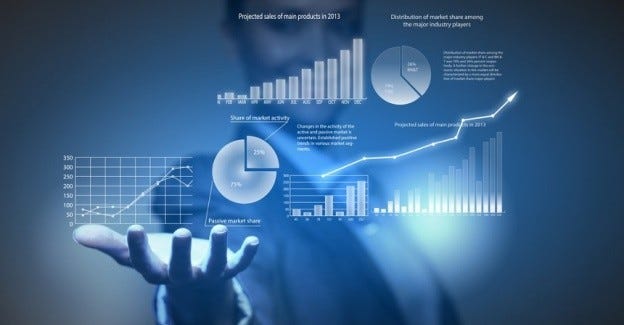7 Best Data Analytics Tools & Software in 2024

In today’s data-driven world, businesses of all sizes rely on data analytics to gain insights, make informed decisions, and stay ahead of the competition. With a plethora of data analytics tools available, choosing the right one can be overwhelming. This blog post highlights seven of the best data analytics tools and software in 2024, each with its unique strengths and use cases.
1. Tableau
Tableau is a powerful data visualization tool that allows users to create interactive dashboards and reports. It’s known for its user-friendly interface anddrag-and-drop functionality, making it accessible to both technical and non-technical users. Tableau’s strong visualization capabilities enable users to easily explore and understand complex data sets, identify trends, and uncover hidden insights.
2. Microsoft Power BI
Microsoft Power BI is a comprehensive business analytics service that integrates with the Microsoft ecosystem. It allows users to connect to various data sources, transform and clean data, and create interactive reports and dashboards. Power BI offers robust data modeling capabilities, making it a suitable choice for organizations with complex data analysis needs.
3. R
R is a popular open-source programming language and environment for statistical computing and graphics. It provides a wide range of statistical and machine learning libraries, making it a versatile tool for data analysis and research. R’s flexibility and extensive community support make it a powerful choice for data scientists and analysts.
4. Python
Python is another versatile programming language widely used in data science and machine learning. With libraries like Pandas, NumPy, and Scikit-learn, Python offers powerful tools for data manipulation, analysis, and visualization. Its ease of learning and extensive community support make it a popular choice among data scientists and developers.
5. SAS
SAS is a comprehensive analytics platform that provides a wide range of tools for data management, advanced analytics, and business intelligence. It’s known for its reliability and robust statistical capabilities, making it a popular choice in regulated industries like finance and healthcare.
6. KNIME
KNIME is an open-source data analytics platform that utilizes a visual programming approach. It allows users to create data pipelines and workflows by connecting various nodes, making it easy to design and implement complex data analysis processes. KNIME extensive library of nodes make it a valuable tool for data scientists and analysts.
7. Qlik
Qlik is a business intelligence and data analytics platform that provides users with a unique associative experience. It allows users to explore data connections and relationships, making it easier to uncover hidden insights and answer complex questions. Qlik’s intuitive interface and powerful data discovery capabilities make it a valuable asset for businesses seeking to gain a deeper understanding of their data.
The choice of the best data analytics tool depends on various factors, including specific business needs, budget, available resources, and the technical expertise of the team. Evaluating these factors carefully will help organizations select the most appropriate tool to support their data analysis initiatives and drive data-driven decision-making.



Comments
Post a Comment